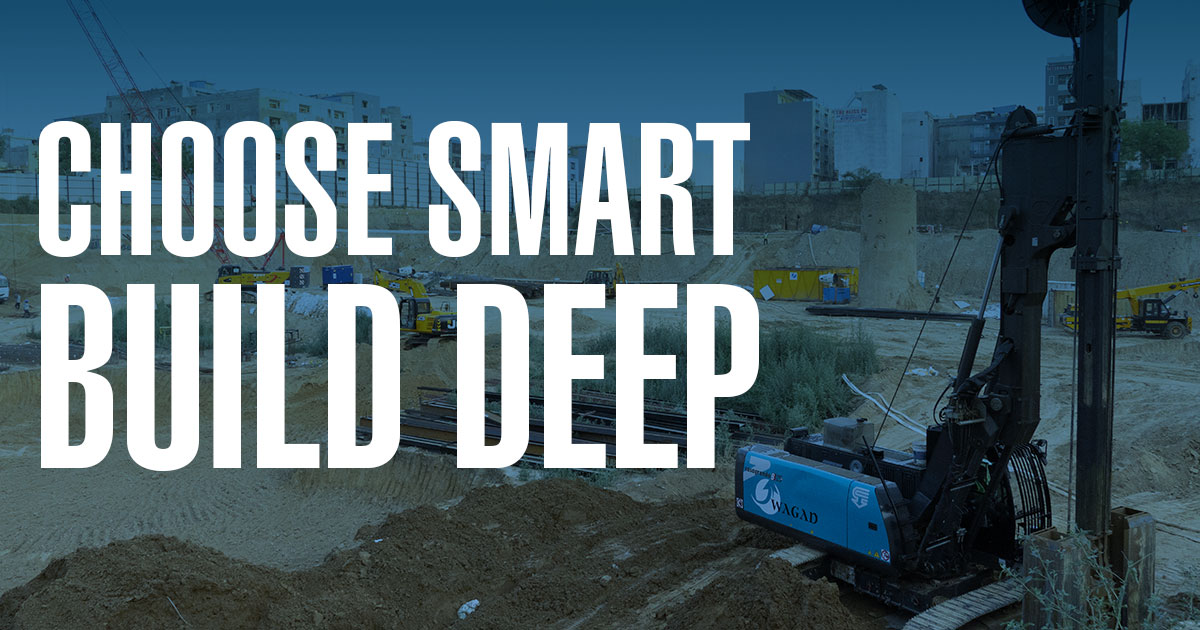
Diaphragm Walls vs Conventional Retaining Walls: A Comparison
In the ever-evolving world of construction, foundation safety and deep excavation techniques have become more critical than ever. One question frequently asked by developers and engineers is: “Should we go with conventional retaining walls or opt for a diaphragm wall (Dwall) system?”
At Wagad Buildcon Pvt. Ltd., we’ve executed several large-scale projects across India using Dwall technology – and here’s why it’s often the smarter choice in today’s complex construction environments.
What is a Diaphragm Wall (Dwall)?
A Diaphragm wall, also known as Dwall, is a reinforced concrete wall built deep into the ground using slurry trench techniques. It acts as a permanent structural element and is commonly used in:
- Basement construction
- Metro stations
- High-rise buildings
- Underground infrastructure projects
Conventional Retaining Walls: A Brief Overview
Conventional retaining walls are gravity-based or cantilever structures typically used to retain soil at different levels. They are often built after excavation, which can pose challenges in urban or congested areas.

Image Reference: www.geoengineer.org
Key Differences: Diaphragm Wall vs Conventional Retaining Wall
| Feature | Diaphragm Wall (Dwall) | Conventional Retaining Wall |
|---|---|---|
| Construction Timing | Constructed before excavation begins | Built after excavation |
| Depth Capability | Suitable for very deep excavations (20m–30m+) | Limited to shallow depths |
| Structural Strength | High load-bearing capacity | Moderate load resistance |
| Safety for Adjacent Structures | Excellent – minimizes ground movement | Risk of soil settlement near existing buildings |
| Space Efficiency | Requires minimal space; ideal for tight urban plots | Needs more area due to wall thickness and base |
| Execution Speed | Faster, especially for large-scale foundations | Slower and labor-intensive |
| Water Seepage Resistance | Highly resistant with proper slurry and sealing | Less effective in water-logged areas |
| Cost | Higher initial cost, but saves on rework and delays | Lower upfront cost, may require more maintenance |
Why Dwall is the Future of Urban Construction
With India’s cities growing vertically and infrastructural demands surging, Dwall construction has become the preferred solution for developers who prioritize:
- Safety of neighboring structures
- Speed of construction
- Long-term durability
- Compliance with deep excavation norms
At Wagad Buildcon Pvt. Ltd., we have successfully executed over 25,000 sq. m. of diaphragm walls, serving clients like Adani Airports, Tata Projects, Smartworld Developers, DLF, Hero Homes, and more.
Wagad Buildcon: Your Trusted Dwall Construction Partner
From airport building basements to commercial high-rises, our team brings unmatched expertise in:
- Deep trenching techniques
- Steel cage reinforcement and cage lowering
- Concreting under slurry
- Safety-first execution in live urban environments
Whether you’re planning a new development or expanding below ground, our Dwall solutions ensure your structure stands on solid engineering.
Conclusion: Choose Smart. Build Deep.
While conventional retaining walls still serve a purpose in limited scenarios, diaphragm wall construction (Dwall) offers far superior performance, especially for deep, urban, and high-load projects.
💡 Looking for reliable Dwall contractors in India?
Let Wagad Buildcon help you build deeper, safer, and faster.
For further inquiries: dwall@wagadinfra.com | +91 89800 05155
Author: Kunal Gupta – Project Engineer (DWall Operations)